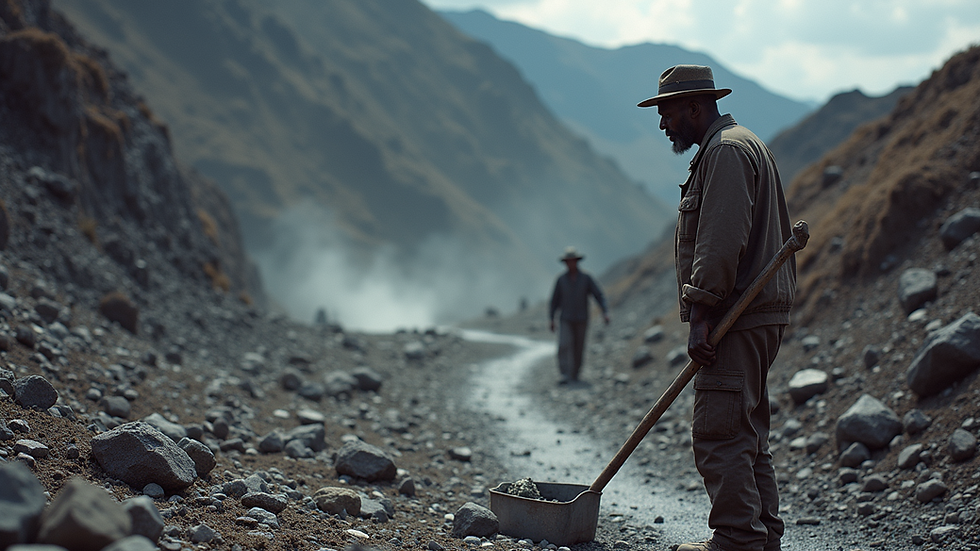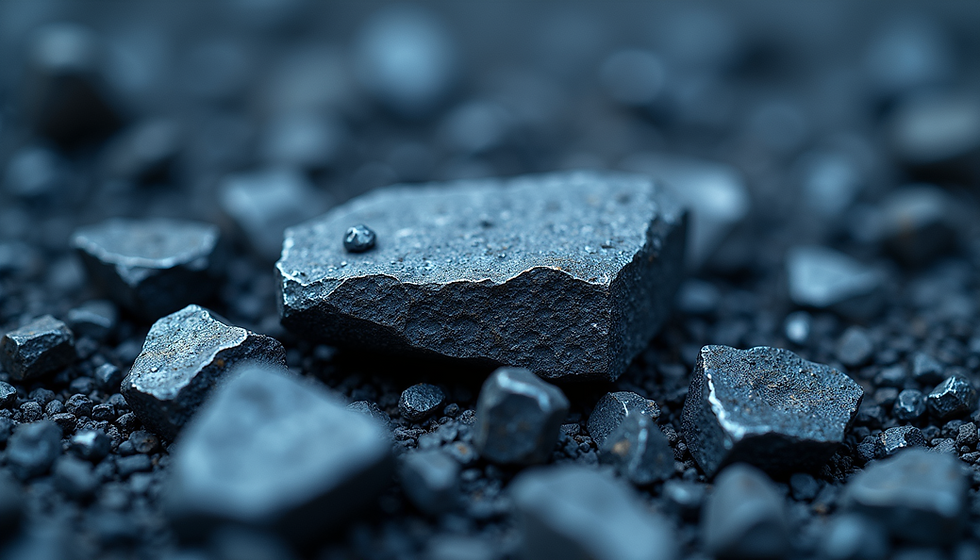DRC’s Mining Sector: Opportunities, Challenges, and What’s Next
- Denisè
- Mar 16, 2025
- 4 min read
The Democratic Republic of the Congo (DRC) is a treasure trove for the global mining industry, boasting an abundance of minerals like cobalt, copper, diamonds, and gold. As interest in these resources spikes, especially for technologies that promote renewable energy, the DRC's mining sector stands on the brink of transformation. In this article, we will evaluate the current state of the DRC's mining sector, the specific challenges faced by artisanal miners, and how ethical sourcing is reshaping mining practices. Additionally, we will explore how companies like us at Mezal Minerals are creating pathways for buyers to access verifiable supply chains.

Current Landscape of the Mining Sector
The DRC is home to over 70% of the world’s cobalt reserves, a vital element in lithium-ion batteries that power electric vehicles and renewable energy storage. As sustainability becomes a priority, the country is experiencing a surge in foreign investment. In fact, investments in DRC's mining sector have increased by over 60% in the last five years, driven by this global demand.
However, the mining sector also faces significant hurdles. Large multinational corporations (MNCs) are making inroads, yet around 10 to 15 million people depend on artisanal and small-scale mining (ASM). These informal operations grapple with issues like limited regulation and labor rights, making it hard for miners to secure safe working conditions.
Challenges Faced by Artisanal Miners
Artisanal mining plays a crucial role in the DRC, offering livelihoods to millions. Unfortunately, these miners often find themselves in dangerous environments. The lack of safety equipment and regulations exposes them to hazardous materials, resulting in alarming rates of injury and respiratory diseases. For instance, a recent study found that artisanal miners have a 25% higher chance of experiencing health issues related to their working conditions compared to their counterparts in regulated operations.
Moreover, securing fair prices for their minerals is another pressing challenge. Many miners rely on middlemen, reducing their earnings significantly. Reports indicate that artisanal miners only receive an average of 40% of the market price of the minerals they extract, as they are disconnected from global supply chains.
Yet, despite these obstacles, artisanal miners bring invaluable local knowledge and resilience. Their ability to adapt and innovate under tough conditions highlights the need to integrate their contributions into the broader mining framework, which could enhance both ethical practices and economic stability.
Ethical Sourcing: A Game Changer
As more consumers and corporations demand ethical sourcing, the mining industry is undergoing a significant shift. Many major brands are actively looking to avoid materials sourced from conflict zones or practices that exploit workers. This shift is not only ethical but also essential for business sustainability.
The need for greater transparency has never been more important. Stakeholders are beginning to understand that ethical mining can lead directly to sustainable development. Companies showcasing their commitment to ethical sourcing are better positioned to attract investments, with research indicating that 78% of consumers prefer brands that are socially responsible.
To facilitate this change, technology plays a vital role. Innovations like blockchain provide the mechanism for tracking minerals through the supply chain, ensuring they are sourced responsibly. These technologies open doors for artisanal miners, allowing them to connect with global markets while adhering to ethical standards.

How Mezal Minerals is Leading the Charge
Mezal Minerals stands at the forefront of redefining the DRC's mining landscape. By linking global buyers to legitimate and traceable supply chains, Mezal not only champions ethical sourcing but also creates opportunities for artisanal miners to receive fair market prices for their resources.
The company focuses on empowering local communities and promoting responsible mining practices. By fostering connections with local miners, Mezal ensures their voices contribute to industry dialogue. This effort strengthens supply chain integrity, giving buyers confidence that their resources are sourced ethically.
Such initiatives not only boost the local economy but also serve to build trust and transparency in the mining industry, an often opaque sector.
Need help navigating the landscape of mineral purchase and exportation? We can help.
Future Prospects: What’s Next for the DRC Mining Sector?
The future looks bright for the DRC's mining sector, which stands to benefit from technological advancements and a growing global focus on sustainable resources. As traditional mining practices blend with modern technologies, we can expect a significant industry transformation.
The rise in partnerships between MNCs and artisanal operations presents a unique opportunity to uplift local communities while ensuring a more sustainable mining framework. For example, collaborative projects that provide training and resources to artisanal miners could lead to more efficient operations and improved market access.
Furthermore, prioritizing community development and environmental stewardship is critical to overcoming the challenges artisanal miners face. Investing in education and safety initiatives could foster a mining environment that values both people and the planet.

The Path Ahead for DRC Mining
Numerous opportunities and challenges await the DRC's mining sector. With a growing emphasis on ethical sourcing and transparent supply chains, the region is well positioned for considerable growth. Companies like Mezal Minerals are leading the charge in harnessing the potential of these resources responsibly, empowering artisanal miners while fostering sustainable practices.
The narrative surrounding the DRC’s mining sector is still evolving. By shifting the focus from exploitation to empowerment, we can create an industry that not only meets global demand effectively but does so responsibly. The world is paying attention, and the DRC stands ready to set a benchmark for ethical mining practices, inspiring nations rich in natural resources to follow suit.




Comments